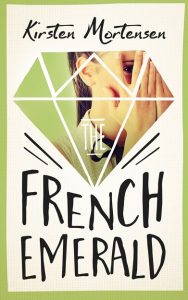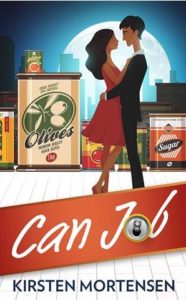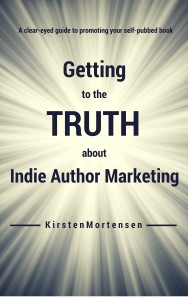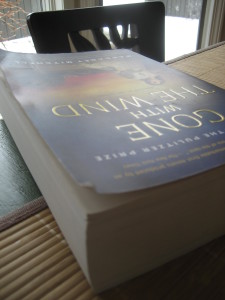I am writing a beautiful tale about corpses. Very seasonable weather for it.
–Evelyn Waugh
Here’s the problem with self-publishing: no one cares about your book. That’s it in a nutshell. There are somewhere between 600,000 and 1,000,000 books published every year in the US alone, depending on which stats you believe. Many of those – perhaps as many as half or even more – are self-published. On average, they sell less than 250 copies each. Your book won’t stand out. Hilary Clinton’s will. Yours won’t.
–Nick Morgan, Thinking of Self-Publishing Your Book in 2013? Here’s What You Need to Know, Forbes, 2013
If you’ve ever written, or have tried to write, or hope to write a novel, I suppose you sometimes think thoughts like the ones I’m thinking today.
Why am I doing this?
What am I trying to do, exactly?
I’m a decent writer. Above average, perhaps. But in this sea of writers — this sea of millions and millions of books — all that being “above average” means is that my head bobs up above the surface once in a while.
Just long enough for me to suck in a quick gasp of air before I disappear again.
I am also, arguably, a confused writer.
I’m envious of writers who live and breathe genre, because if you’re a passionate fan of genre, and then you decide to write genre, a big chunk of the “why” question is automatically answered. You’re writing to contribute to the genre. Genre readers are always looking for more genre to read. What you’re doing is participatory — reciprocal.
I like genre. I’ve read a fair share of genre. But I have never honestly felt completely at home in any genre community.
And look. Here’s what someone posted in a new review on my novel, Can Job:
Really 3.5 stars because it’s solid, but it never makes up its mind about what genre it wants to be.
You get a sense that this is going to be a romantic chick-lit romp from the cover and some of the scenes, but the majority of it reads like an attempt at big business satire.
A totally fair critique, I’m sure. From someone who obviously reads a lot and who doesn’t know me, and so isn’t even subconsciously inclined to just “go along with it” when I color, awkwardly, outside the lines.
And the thing is, it’s intentional. I’m doing this to myself, on purpose.
Sigh.
So I’m working on another novel, one of 3 or 4 WIPs in various stages of done-ness. And wrestling with the same kinds of questions.
What kind of book is this?
What am I trying to say?
I mean: what am I really really trying to say?
Let’s go back again to Faust.
Start in the 1500s with Historia & Tale of Doctor Johannes Faustus.
Faust is the arrogant guy who renounces Christianity and trades his soul in exchange for, basically, magical powers.
Peel that back and the story asks the questions: what is good? what is evil? what is truly most important and why are some people foolish enough to trade the most important away?
The answers are based on the assumed 16th century virtues of obedience and faith. Faust, like Lucifer in the Historia’s tale-within-a-tale of that angel’s fall, “rose up in insolence and vanity.” He thought he was too (good? smart? something) to heed the guidance of the Church.
Goethe’s Faust, written some 300 years later, asks the same questions but frames them completely differently.
Romanticism, suddenly aware of dynamic (even irrational) principles underlying both man and nature, took striving–tentative progression and development, and pure endeavor–and made it the defining quality of mankind.
From “Masterpieces of Romanticism,” edited by Howard E. Hugo, in The Continental Edition of World Masterpieces.
A being of searchings and questionings, living a life of constant aspiration towards goals but dimly seen–this, as described by God, is the being He has created in His own image.
And of the devil’s pact with Goethe’s Faust:
Here is no simple temptation to be naughty …
If Mephistopholes can destroy Faust’s sense of aspiration, if Faust can say of any single moment in time that this is complete fulfillment of desire–then the devil wins, and God and man are defeated.
I.e. “evil” is the cessation of striving toward something.
That something is still God. But it’s not obedience to God in the narrow sense articulated by the first Faust chapbooks. To Goethe, to be “good” is to be an active participant in God’s plan–to actively fulfill your part in God’s plan for humanity.
Obviously we see, here, the ideas of Progressivism in its modern/political sense, stirring in the minds of 19th Century Romantics. Or anyway, in a 1956 essay on Romanticism by an English professor at Berkeley ;)
So two final things and then I hit “publish.”
First, here I am in 2018 pondering two versions of Faust, one of which was published 450 years ago, and the other 200-ish.
And the ideas communicated by these two works are effing immense. You almost can’t get your head around them, they’re so big. Poke at them and they start to rattle you.
And part of me wonders, what is the point of writing a novel that is any less than this — that is any smaller?
Second: what kind of mind could possibly wrap itself around these same questions today?
Set aside that I wouldn’t dare to suggest I am personally capable of such a feat. I’m not that smart, and my world–including my intellectual world–is far too parochial. Pains me to know this, but I know this.
The fact is, it’s quite possible nobody could pull off a new Faust today. We’re drowning in noise–and we’re so fractured by social technology that no one mind can hope to bridge us.
And yet, I keep writing, and I keep thinking there’s no other novel that’s really worth writing, except a novel that tries …








